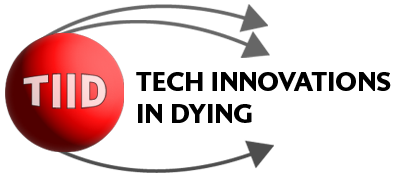BACKGROUND

Over the past 30 years and in the majority of countries where assisted suicide and voluntary euthanasia are now legal, control over dying is tightly controlled by the medical profession.
As Dutch writer/ journalist, Henk Blenken, wrote in The Guardian in 2018:
‘It is a sad story. The right to die has been discussed for so long now in the Netherlands that we have come to believe we each have the right to die when we want. But when push comes to shove, the patient is not the one who decides on their euthanasia. It is the doctor who decides, and no one else’.
The medicalisation of the dying process has resulted in several unfortunate outcomes.
-
- The medical profession is in control of the dying process – The primary means of bringing about elective death in countries where there is a law is with the drug Nembutal (or pentobarbital). This substance is tightly regulated and limited to medical professionals. This regulation has meant that the doctors have become the gate-keepers in terms of who gets a good death (and when) since it is only doctors who have access to this drug and who have the lawful right to prescribe it for their patients. This maintains the medical profession as powerful players in end of life choice. This situation diminishes personal autonomy and self-determination. This approach is the antithesis of autonomous, intelligent decision-making by older adults of sound mind.
- The strict qualifying criteria or an assisted death excludes many people seeking autonomous control at the end – The second (unintended) outcome of the existing assisted suicide/ voluntary euthanasia legal framework is that a person needs to be seriously ill or suffering to get medical help to die. Yet with the longer life course, many people are living longer, but sicker lives. Quality of life in the final years of life can be very poor. At the current time, old age in and of itself, is no reason for a doctor to help a person to die. Indeed, the professional bodies of the medical profession remain hostile to doctors helping ‘non seriously ill’ older people who say that they have ‘completed life’ and ’now is the time to die’.
- The role of new technologies – Given that assisted dying/ voluntary euthanasia laws depend upon the prescription of a lethal drug by the medical profession, new technologies may offer a non-medical option to lawful, elective dying for older people who are not seriously ill and suffering (and who therefore fall outside existing medical laws).
To date, law reform efforts have failed to broaden the qualification criteria to include ‘completed life’ or ‘tired of life’. Furthermore, the means of death has remained drug-based, despite other options existing.
The public education, awareness-raising, advocacy, research and development intended by the Tech Innovations in Dying Foundation focuses on the use of technology to facilitate lawful, considered, peaceful dying that is non-medical in character and autonomous in practice.
RSIN / Tax Number 868152845
KVK 97641693
Leidsevaart 11, 2114 AK Vogelenzang NL